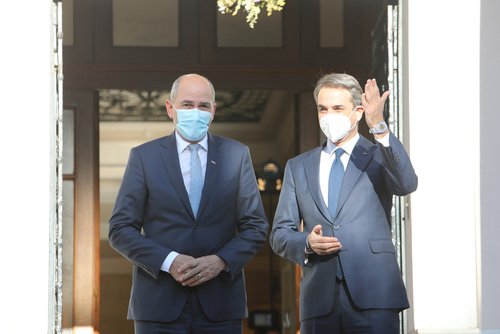Brussels (Brussels Morning) Slovenia assumed the EU’s rotating presidency on Thursday amidst fears that Prime Minister Janez Janša’s apparent disregard for European values could exacerbate the East-West divide within the Union and weaken the rule of law in the bloc.
Known for his increasingly autocratic style of government, Janša was one of the few EU leaders to openly admire former US President Donald Trump, and, like him, is a devotee of Twitter. On the eve of the 2020 US presidential elections, Janša was the only EU head of government to Tweet his congratulations to Trump for winning, even though the count was still ongoing.
In recent months, Janša has increasingly gone against Brussels in his views of the rule of law and the freedom of the press, referring to critical journalists as “presstitutes”. The Slovenian PM is also a close friend of Hungary’s Prime Minister Viktor Orbán. His critics accuse him of increasingly copying Orbán’s style of governance, and fear that Janša is attempting to turn Slovenia into another Hungary.
Janša and his Polish counterpart Mateusz Morawiecki were also reportedly the only ones to side with Orbán during the EU summit last week, when a majority of EU countries blasted Hungary’s most recent anti-LGBT law, aiming to prevent any depiction of homosexuality from being accessible to minors.
In the European Commission’s ongoing battle with the Polish crackdown on the rule of law, Janša has repeatedly taken Warsaw’s side, albeit publicly adopting a stance that is much more pro-European.
In April, Janša caused a significant upset in EU circles after informally proposing a redrawing of the Balkan borders to “solve regional tensions”. A controversial non-paper, reportedly authored by Janša as he was preparing to assume the EU presidency, envisioned breaking up Bosnia and Herzegovina to merge parts of its territory with Serbia and Croatia, and a land swap between Serbia and Kosovo aimed at merging the former Yugoslav province with Albania.
The proposal was quickly shot down. The EC denied ever having seen the white paper and the Slovenian government denied ever sending it. However, details in the paper make it clear that the proposal was meant to be discussed quietly, out of the public view.




